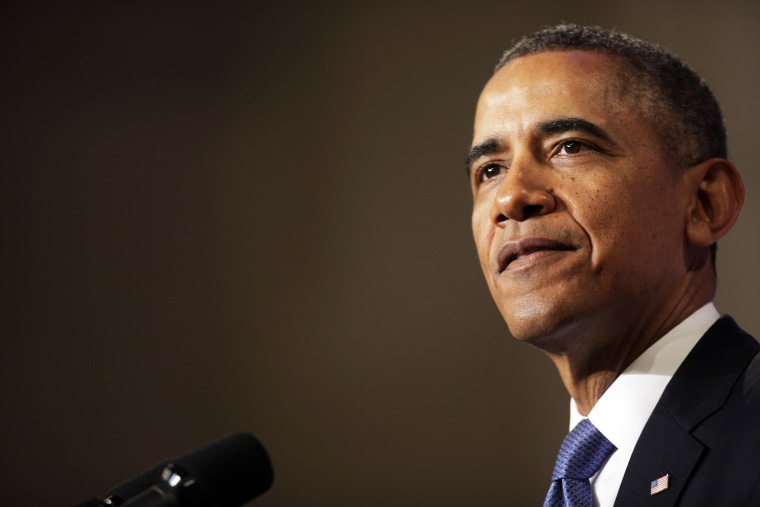President Obama believes that his race is a contributing factor to his low approval ratings in recent days, according to a new interview he gave to the New Yorker.
“There’s no doubt that there’s some folks who just really dislike me because they don’t like the idea of a black president,” Obama said in the interview.
But he also acknowledged that his race might also help his favorability with a different set of Americans.
“Now, the flip side of it is there are some black folks and maybe some white folks who really like me and give me the benefit of the doubt precisely because I’m a black president.”
A slight majority of Americans approved of the president's handling of his job and about 40% disapproved this time last year as the president prepared for his second inauguration. But Obama has seen a slow and steady decline since then, and those numbers have reversed. His approval sits at 40% according to the latest Gallup tracking poll, while 52% of those polled say they disapprove of his job performance.
A Quinnipiac poll from November found that African-Americans were the only racial group more likely to approve of the president's performance than disapprove. Three-quarters of black voters respondents said they approved of his job performance, with 15% disapproving. For whites only 32% approved, while 62% disapproved of his job performance.
That same poll showed similar racial breakdowns when respondants were asked if Obama "cares about the needs and problems of people like you." Blacks were more than twice as likely to answer yes to that question than whites.
The president recognized that the role of race in politics is nuanced in the same interview with the New Yorker:
“There is a historic connection between some of the arguments that we have politically and the history of race in our country, and sometimes it’s hard to disentangle those issues,” he went on. “You can be somebody who, for very legitimate reasons, worries about the power of the federal government—that it’s distant, that it’s bureaucratic, that it’s not accountable—and as a consequence you think that more power should reside in the hands of state governments. But what’s also true, obviously, is that philosophy is wrapped up in the history of states’ rights in the context of the civil-rights movement and the Civil War and Calhoun. There’s a pretty long history there. And so I think it’s important for progressives not to dismiss out of hand arguments against my Presidency or the Democratic Party or Bill Clinton or anybody just because there’s some overlap between those criticisms and the criticisms that traditionally were directed against those who were trying to bring about greater equality for African-Americans. The flip side is I think it’s important for conservatives to recognize and answer some of the problems that are posed by that history, so that they understand if I am concerned about leaving it up to states to expand Medicaid that it may not simply be because I am this power-hungry guy in Washington who wants to crush states’ rights but, rather, because we are one country and I think it is going to be important for the entire country to make sure that poor folks in Mississippi and not just Massachusetts are healthy.”
